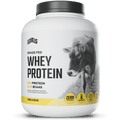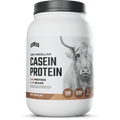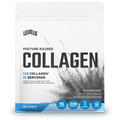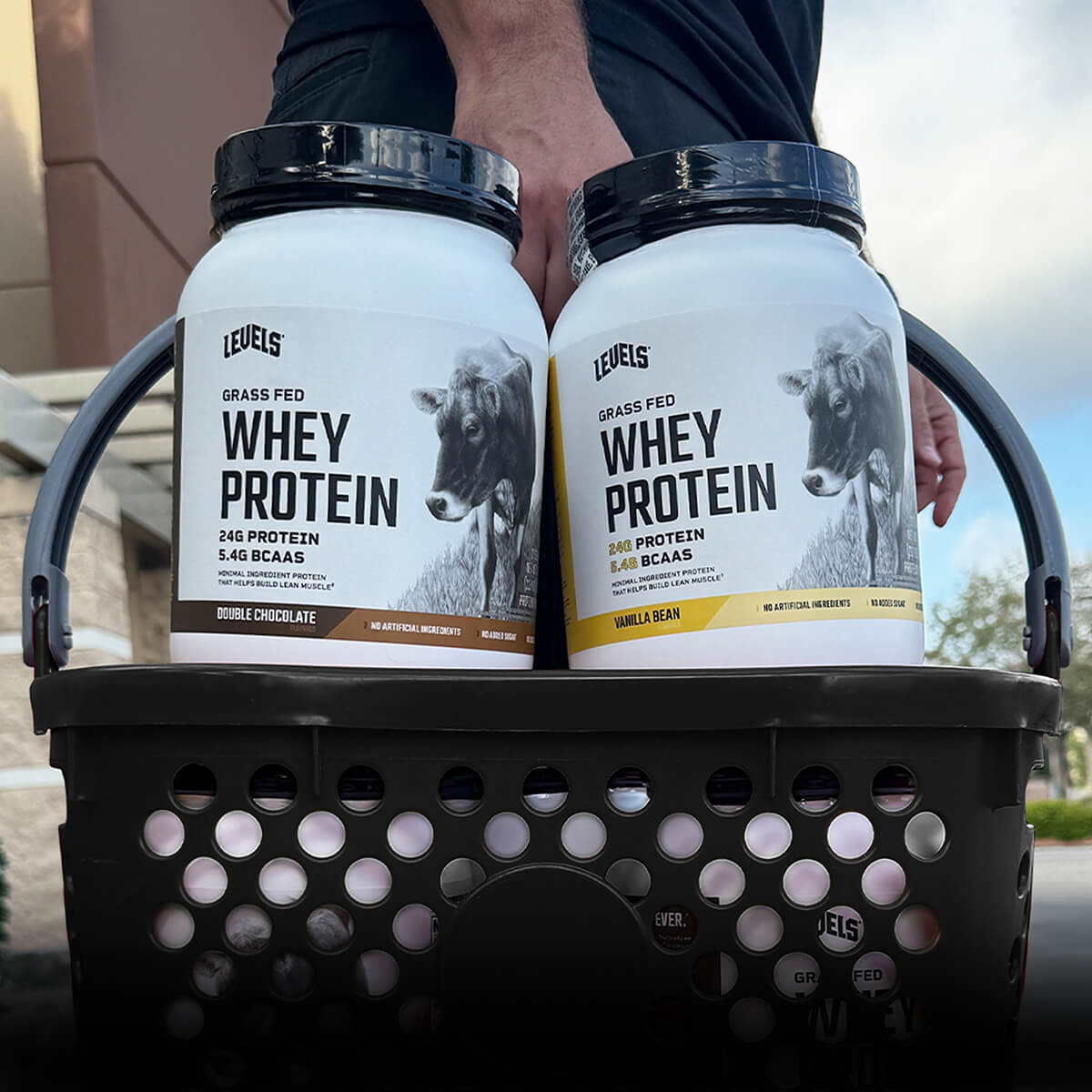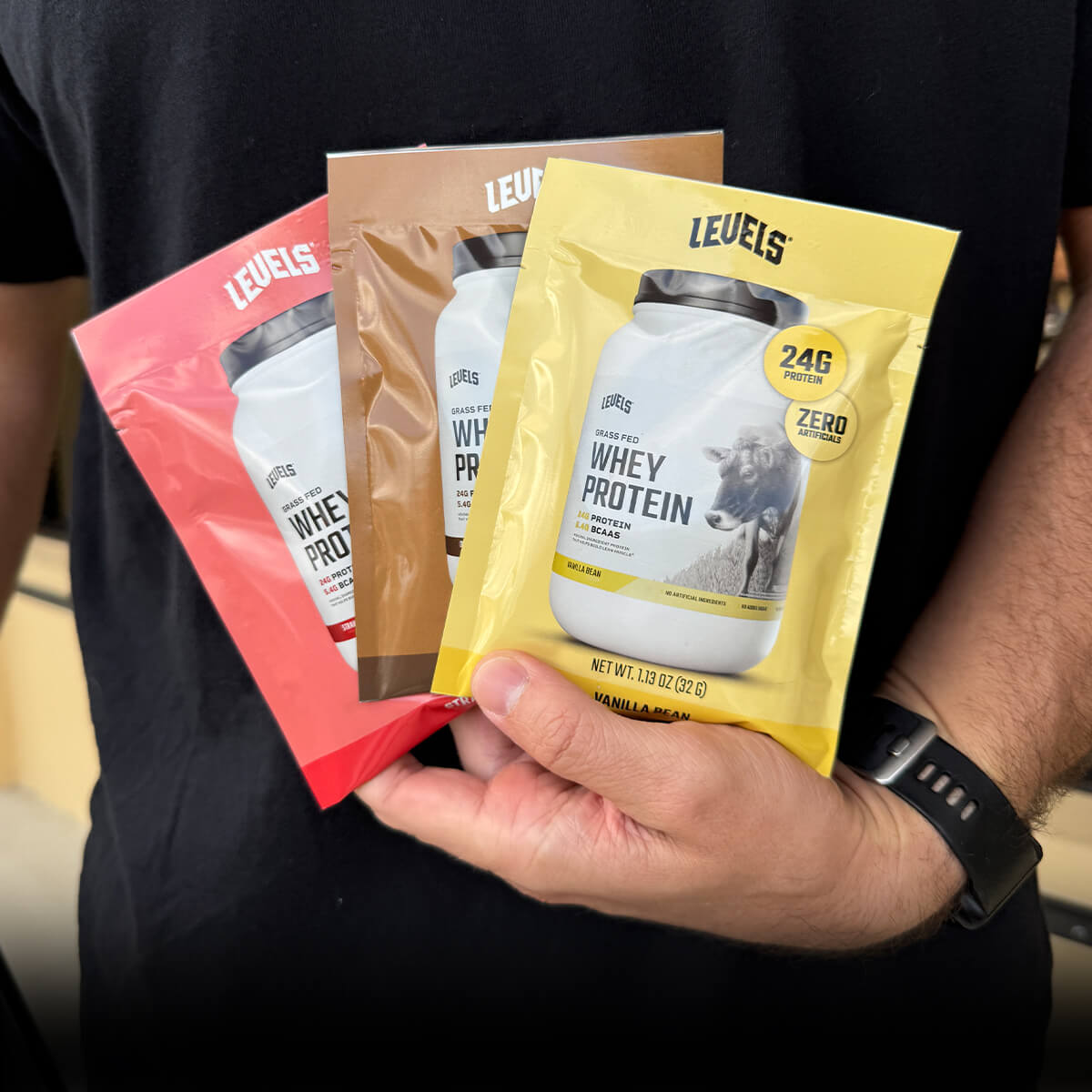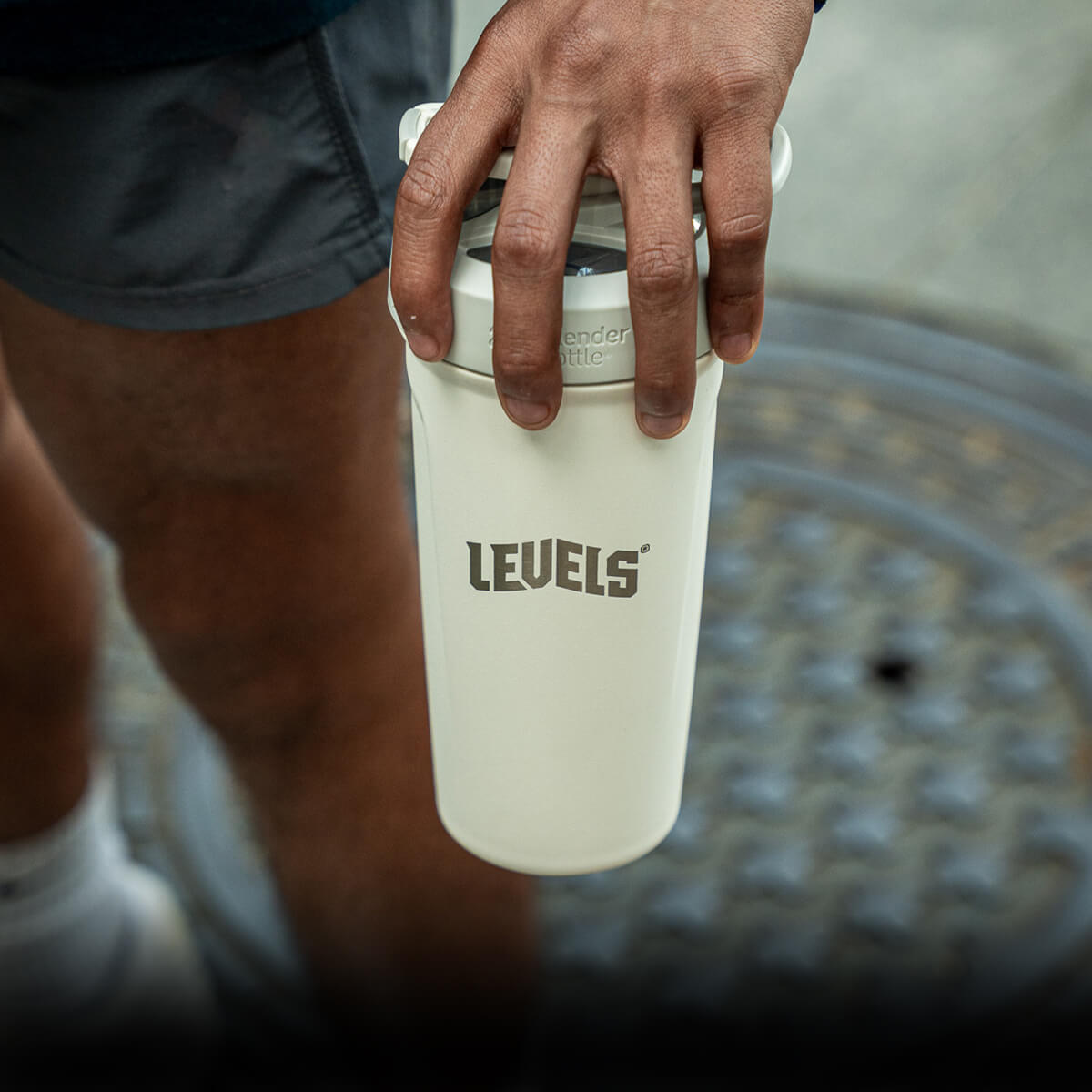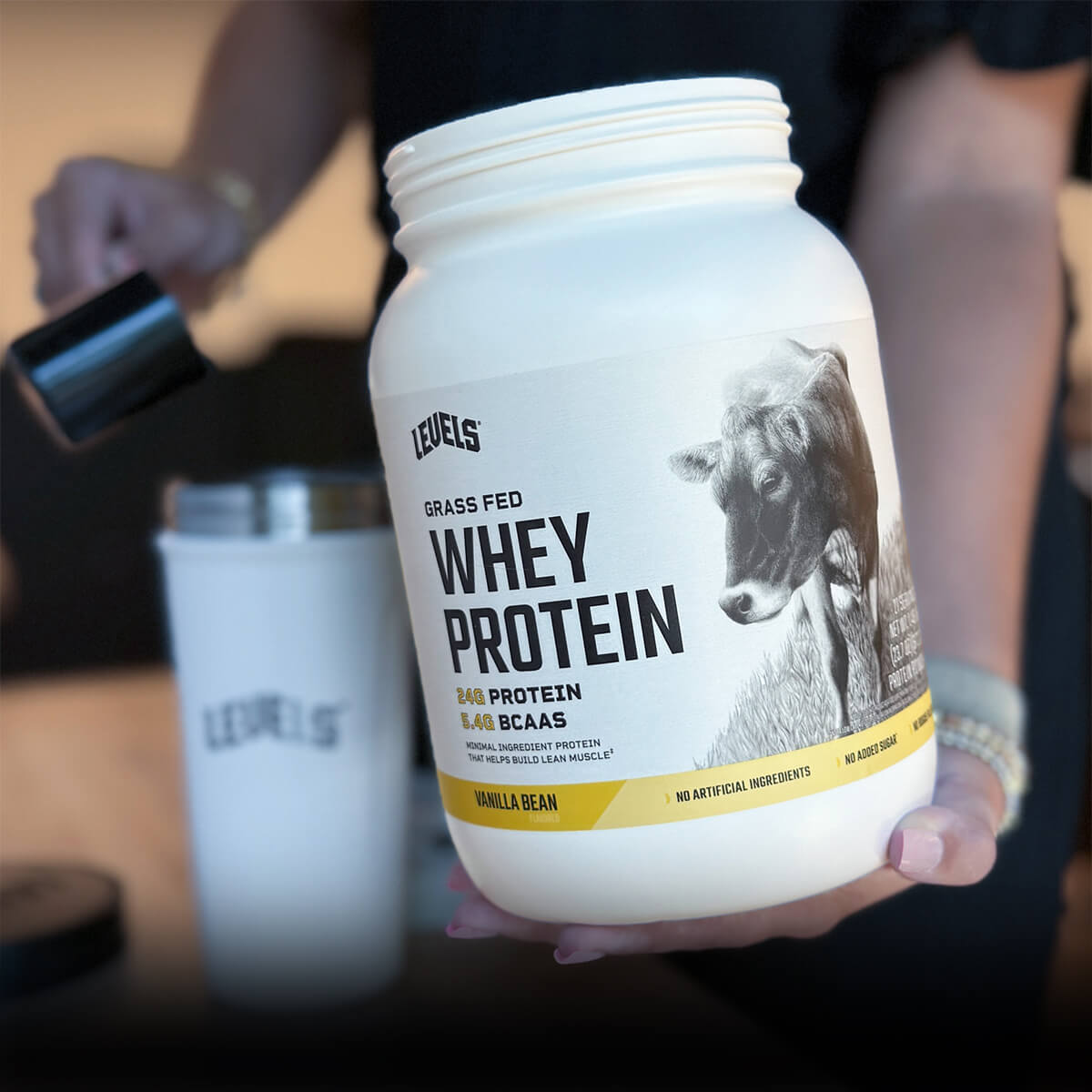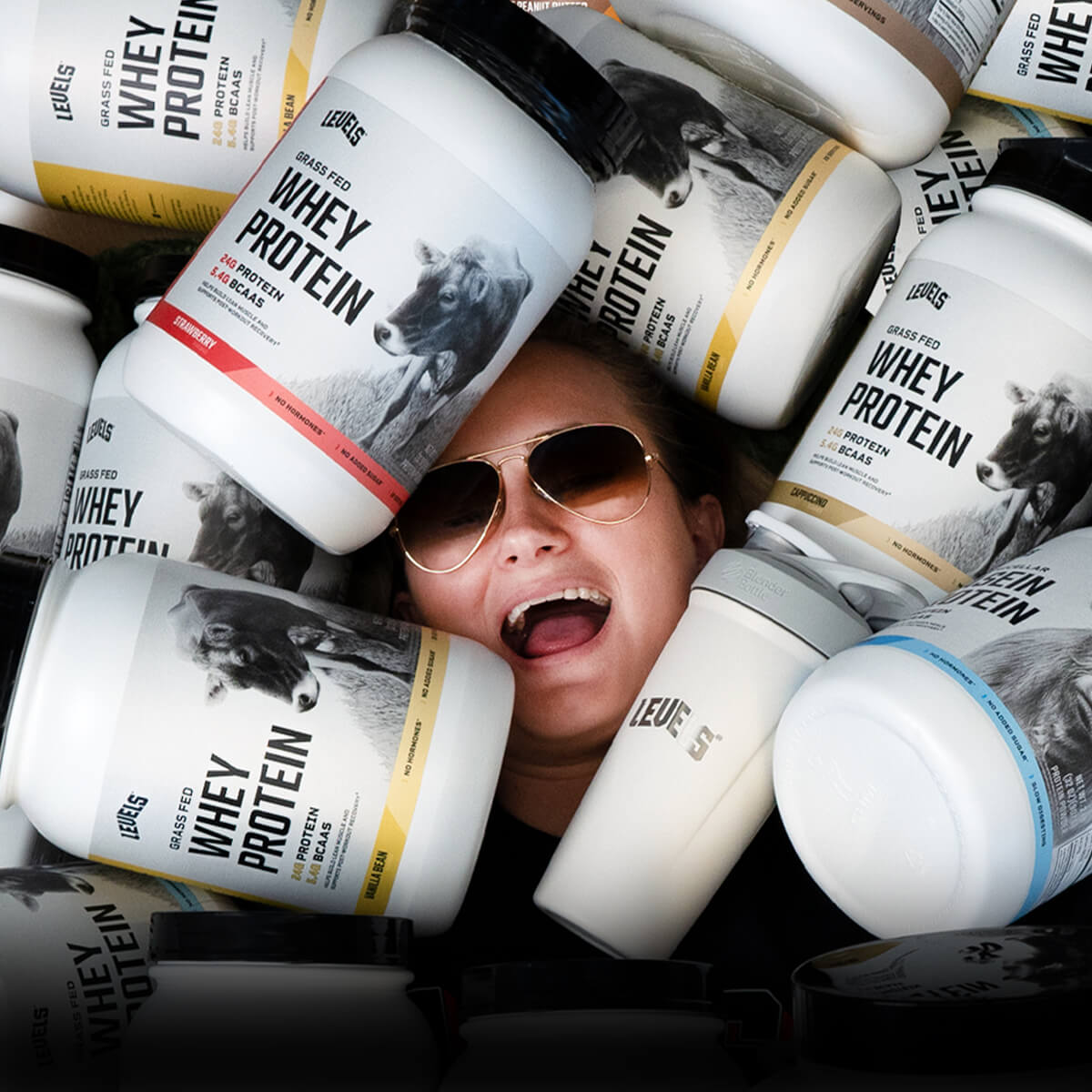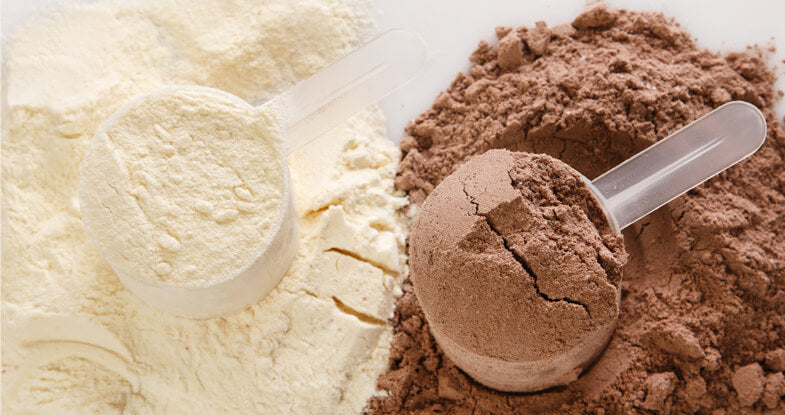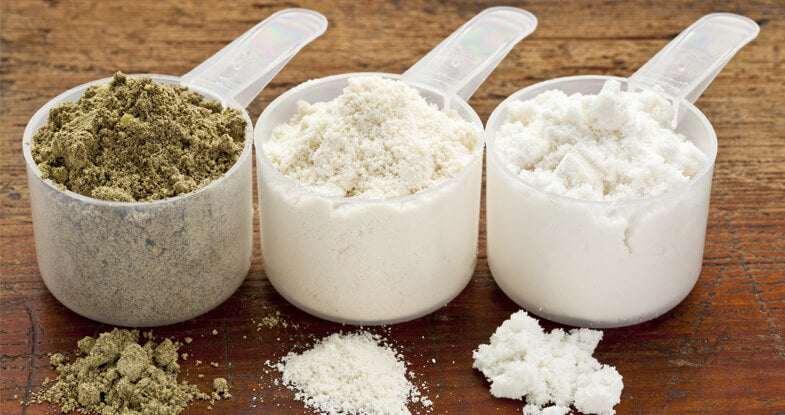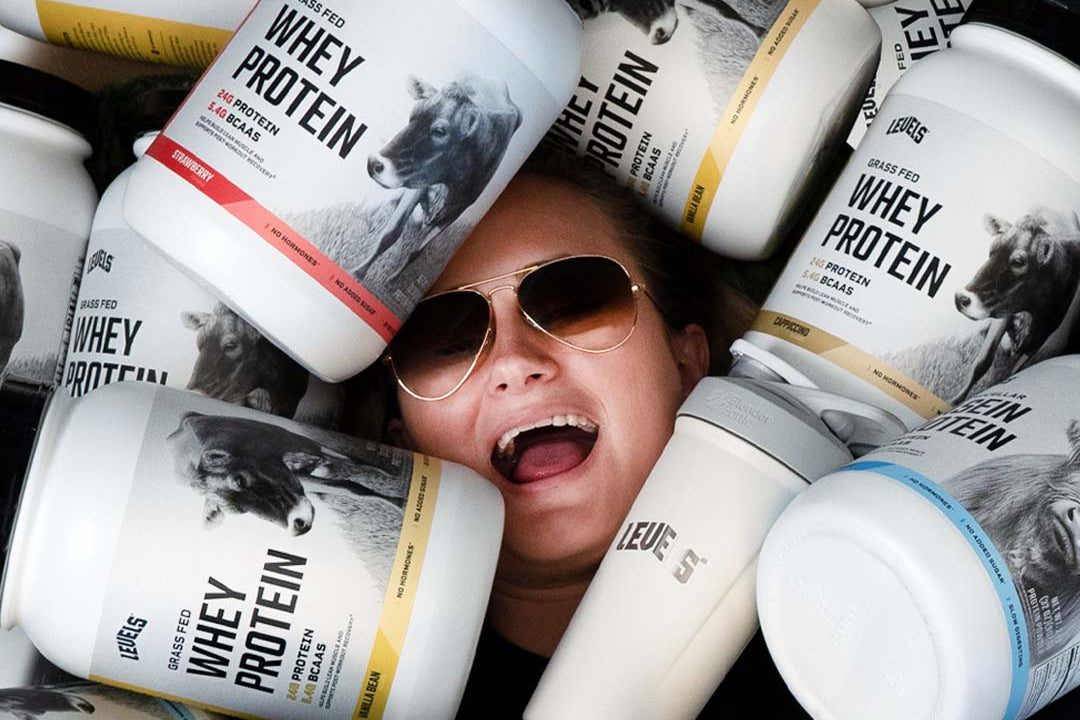There’s no question that whey protein is a highly effective supplement. It can help you get better results in the gym, build muscle more efficiently, or shed fat more easily.
But should you go with whey protein isolate or whey protein concentrate?
Get ready for a deep dive into the similarities and differences between whey isolate and concentrate, plus what science says about the pros and cons of each.
In this article, you’ll learn everything you need to make the right whey protein decision for your needs and goals.
What Is Whey Protein?
Whey protein powder is a protein supplement made from milk. Compared to other protein sources, whey offers unique nutritional advantages for athletes and people who exercise regularly.
Importantly, whey is a complete protein, meaning it contains all 9 essential amino acids (EAAs) your body requires[*]. It’s also rich in the branched-chain amino acids (BCAAs) leucine, isoleucine, and valine, containing up to 20% BCAAs by weight[*].
And unlike casein and many other types of protein, your body digests and absorbs whey protein rapidly[*].
Peer-reviewed studies show that regular whey protein consumption can:
- Enhance the rate of exercise recovery[*][*]
- Increase muscle growth more than other types of protein[*]
- Suppress appetite[*]
- Speed up fat loss[*]
- Decrease the loss of lean muscle mass during fat loss[*][*]
The two most popular forms of powdered whey are whey protein concentrate and whey protein isolate. Keep reading to learn how they’re different from one another, and why you might choose one over the other!
Similarities and Differences Between Whey Isolate and Concentrate
Whey isolate and whey concentrate both come from liquid whey, which is a byproduct of manufacturing cheese or yogurt.
The process of making whey protein concentrate from liquid whey is called ultrafiltration[*]. After ultrafiltration, the resulting concentrate contains 80-85% protein by weight, plus 15-20% lactose and milk fat.

On the other hand, compared to whey protein concentrate, whey protein isolate is far more processed[*]. As a result, whey isolate contains 90% or more protein by weight[*].
Nutritional Facts
A 30-gram scoop of unflavored whey protein concentrate contains about 130 calories, 25 grams of protein, 2 grams of fat, and 3 grams of carbs.
And by comparison, a 30-gram scoop of unflavored whey protein isolate contains about 110 calories, 27 grams of protein or more, 0 grams of fat, and 0 grams of carbs.
Due to the extra processing during manufacturing, whey protein isolate is virtually free of lactose and milk fat.
Price
Because it requires a more complex manufacturing process, whey protein isolate is more expensive to make than whey concentrate.
For customers, a serving of whey isolate usually costs 25-40% more than an equivalent serving of whey concentrate.
Amino Acid Profiles
Because they both come from the same source (liquid whey), whey isolate and whey concentrate have the same amino acid profiles.
Whey protein supplements like concentrate and isolate have higher levels of important amino acids, namely EAAs and BCAAs, than other types of protein powder[*].
The high levels of EAAs and BCAAs help explain why whey protein is more effective at promoting exercise recovery and muscle growth than other protein supplements[*].
Whey Isolate vs. Concentrate Pros & Cons
Whey protein isolate and whey protein concentrate are not all that different.
For most people, the price tag is the most noticeable difference between isolate and concentrate. Typically, a 25-40% higher price isn’t enough to justify a couple of extra grams of protein per serving of whey isolate.
What about the other macronutrients? The highest-quality whey protein isolate has zero carbs and zero fat.
However, even the strictest low-carb or low-fat diets have room for the 3 grams of carbs and 2 grams of fat per serving in whey protein concentrate.
And although they have the same amino acid profile, there are significant differences in the protein fractions found in whey isolate versus concentrate.
And compared to whey isolate, whey concentrate has a higher amount of intact protein fractions and bioactive peptides. Due to the intensive processing during manufacturing, much of the protein in whey isolate gets denatured (altered in shape)[*][*].
Some potential effects associated with the intact whey protein fractions and bioactive peptides in whey concentrate include:
- Antioxidant activity[*]
- Antihypertensive (blood pressure lowering) effects[*]
- Reductions in blood glucose[*]
- Heart health benefits[*]
Bottom line: because it has a greater number of intact proteins with their original three-dimensional shape, some researchers think whey concentrate may have additional health benefits over whey isolate[*].
Should You Take Whey Isolate or Whey Concentrate?
Most people should consider taking whey protein concentrate instead of whey isolate.
Whey concentrate is more economical, equally or more effective for exercise recovery and muscle growth, and contains negligible amounts of carbs and fat.

In fact, many lactose-intolerant people can still tolerate the low amounts of lactose in whey concentrate[*].
And not only that, but whey concentrate also contains intact protein fractions that may contribute to your health in a variety of ways that researchers haven’t yet studied thoroughly[*][*][*].
In contrast, here are a few reasons someone might choose whey isolate instead of whey concentrate:
- Extreme lactose intolerance
- Following a diet that allows few or no carbs, such as the medical ketogenic diet for epilepsy[*]
- Following a zero fat diet (which we don’t recommend)
- More protein per serving
Essentially, unless you can’t tolerate the minimal lactose in whey concentrate or follow an unusually restrictive diet, there’s not much reason to pay extra for whey isolate.
Subscribe to get the latest advice, sales, discounts, product drops and more. Join now and get 15% off your first order.
How to Take Whey Concentrate or Whey Isolate
Whether you choose whey concentrate or whey isolate, follow these best practices to get the most out of your protein powder supplement strategy.
Timing
If you’re training hard and want to recover faster or build more muscle, using whey shakes around training sessions is a time-tested strategy.
It doesn’t matter much whether you drink your protein shake before or after exercise, but consuming it as close as possible to training is wise.
Conversely, if you’re using protein shakes to boost your daily protein intake or to replace meals, timing is less consequential.
Simply drink your whey protein shake with a meal, or (if you’re using it as a meal replacement) whenever you’d typically eat.
Amount of Protein
Getting enough protein in your diet is essential for burning fat, retaining lean muscle during fat loss, and building muscle.
At Levels, we recommend consuming 40 grams of whey protein in your recovery drink or meal replacement shake. From there, you can also experiment with higher doses, especially if you’re over 200 pounds.

Additionally, research shows that sufficient daily protein intake helps reduce appetite, enhance weight loss, boost your metabolism, and speed up recovery from exercise[*][*][*][*][*][*].
At Levels, we recommend 25-30% of your daily calories come from protein. For example, if you eat 2000 calories per day, that’s between 125-150 grams of protein each day.
Whey protein is an ideal and cost-effective way to ensure you get at least 25% of your calories each day from protein.
The Bottom Line
For most purposes, whey protein isolate and whey protein concentrate work equally well.
However, whey isolate is up to 40% more expensive, and unless you have severe lactose intolerance, it doesn’t offer any significant advantage over whey concentrate.
You could opt for isolate if you want a few extra grams of protein per serving, but you could also increase your concentrate serving size instead (and save money in the process).
While some people do feel whey isolate works best, that’s an individual preference--at this point, there’s no scientific evidence to confirm that it’s better than concentrate.
Also, some researchers think that the intact proteins in whey concentrate may actually be healthier than the denatured proteins in whey isolate.
Regardless of which whey protein you choose, remember to dial in your timing, dosage, and daily protein intake for best results.
